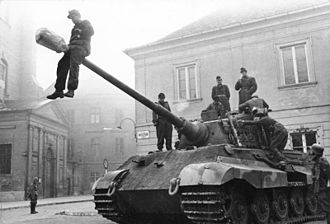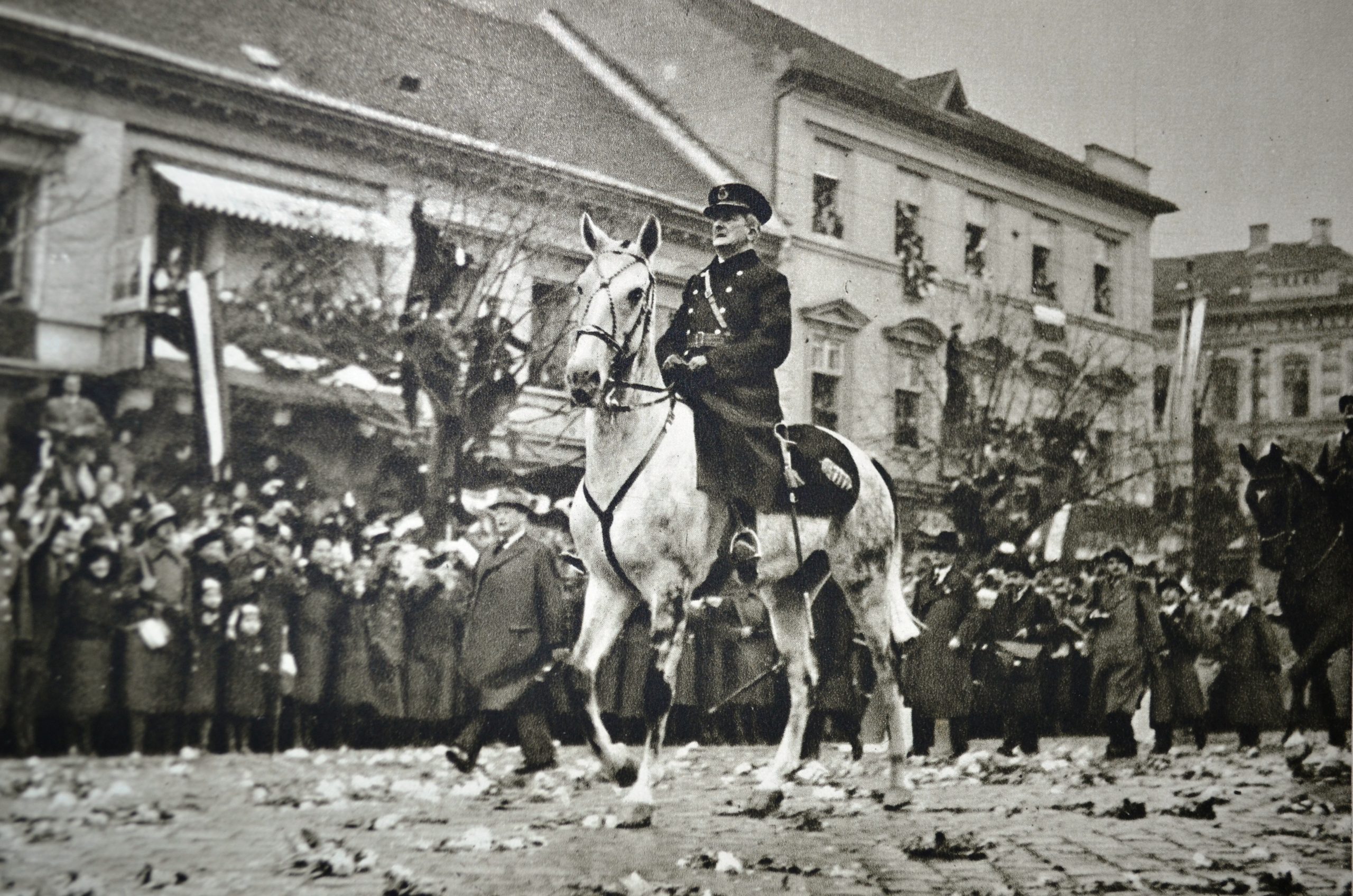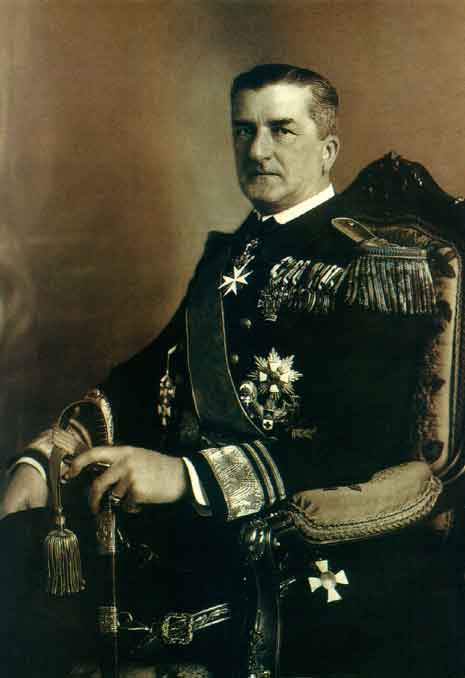
In 1940, Hungary became the fourth member to join the Axis powers when it signed the Tripartite Pact, thereby entering the war.Continue reading

A memorial service for Miklós Horthy was held in Kenderes, eastern Hungary, commemorating the 30th anniversary of the reburial of the former regent. The event was attended by János Lázár, Minister of Construction and Transport, from the government side, who had caused some controversy with his speech about Horthy among certain circles. The former Hungarian leader is considered by many to be a controversial figure in Hungarian political history, especially for his decisions made during the Second World War.
The current government’s interpretation of Miklós Horthy is one of a controversial figure, for example for his role in the deportations of rural Jewry.
However, some historians give him an amount of credit for his role in blunting the influence of the Nazi regime in Hungary. It was interesting to learn what János Lázár, a prominent government minister, had to say on the spot where 30 years ago other Fidesz party politicians of the time stayed away from a reburial. Prime Minister Viktor Orbán himself has not said anything about the recent commemoration.
However, prior to the Nazi occupation within the area of Hungary, 63,000 Jews were killed. In late 1944, 437,000 Jews were deported to Auschwitz-Birkenau, where the majority were gassed on arrival.
The opposition-friendly news portal Telex was present at the commemoration and reported that Lázár said the following at the event: “I think that we must speak clearly and unequivocally: today, those of us who have come together here respect Miklós Horthy and his memory (…) We have come together to bow our heads and remember.” The minister said that Horthy was an exceptional statesman, a true Hungarian patriot, and a heroic soldier, adding that in 1919, he saved the country from the fate that the “Western powers” had destined for Hungary.
“An objective assessment is still needed. The further we get from 1920-1944, the more objectively we can judge him (…) There is a lot of emotion on the issue, it will take a long time for this picture to clear up,” Lázár said.

Miklós Horthy. Photo: Wikipedia
The minister’s words did not go unnoticed in the Hungarian media, and there was even a reaction from the government. Zoltán Kovács, State Secretary for International Communication and Relations, argued on his social media page X (formerly Twitter) that “while the Hungarian government does acknowledge Miklós Horthy’s role in Hungarian state and nation-building after World War I, we are clear about his actions during and leading up to World War II.”
The state secretary recalled a meeting between Viktor Orbán and Israeli Prime Minister Benjamin Netanyahu in 2017, where the Hungarian leader spoke about the significant Jewish minority that currently lives in Hungary.
‼️With regard to Minister Lázár’s recent speech, it’s vital to get something straight: While the Hungarian government does acknowledge Miklós Horthy’s role in Hungarian state and nation-building after World War I, we are clear about his actions during and leading up to World War… pic.twitter.com/PIVqZeWIyR
— Zoltan Kovacs (@zoltanspox) September 6, 2023
“I made it perfectly clear to the Honorable Prime Minister that, as Hungarian citizens, their security is guaranteed by the Hungarian state to the fullest extent. I also made it clear to the Honorable Prime Minister that the Hungarian government proclaims zero tolerance on anti-Semitism of every kind. I told the Prime Minister that in Hungary today, Jewish life is undergoing a renaissance, and we are proud of this. We believe that this renaissance in Jewish life is a major contribution to the Hungarian nation’s communal achievements,” said Orbán back then.
As Kovács recalled in his post, history was inevitably discussed at the 2017 meeting, and Orbán emphasized that Hungarians were aware of the sore points.
I sought to clearly articulate that in an earlier period in history, when it failed to protect Hungary’s citizens of Jewish origin, Hungary’s government not only committed an error, but a crime. I would like to make it clear that, as we see it, it is the duty of every Hungarian government to protect every one of its citizens – regardless of their origins.”
“In the Second World War, Hungary failed to fulfill this duty – this moral and political duty. This was a crime. Then, instead of protecting the Jewish community, we decided to collaborate with the Nazis. I also made it clear to the Honorable Prime Minister that this can never happen again: in the future the Hungarian government shall protect all of its citizens,” stressed the Hungarian Prime Minister in 2017.
In response to the events, Lázár shared an interview from 1993, in which former Prime Minister József Antall spoke about Horthy on the occasion of his reburial.
József Antall (MDF), who served as the first democratically elected Prime Minister of Hungary after the end of communism, said that he considered Miklós Horthy to be a Hungarian patriot who had every right and every moral basis to wish to rest in Hungarian soil.
As he said, the historical and political judgement of Horthy is not only a task for historians, but his person must also be placed fairly in the nation’s consciousness.
Antall pointed out that the Hungarian government’s position on Horthy’s reburial was that it was an act of remembrance as a private wish of the family, not a state event. He added, however, that it was natural that on the death of a statesman who had played such a leading role in Hungary’s history, members of the government should appear and be present, albeit in a private capacity.
Featured photo via Wikimedia Commons/Ladislav Luppa